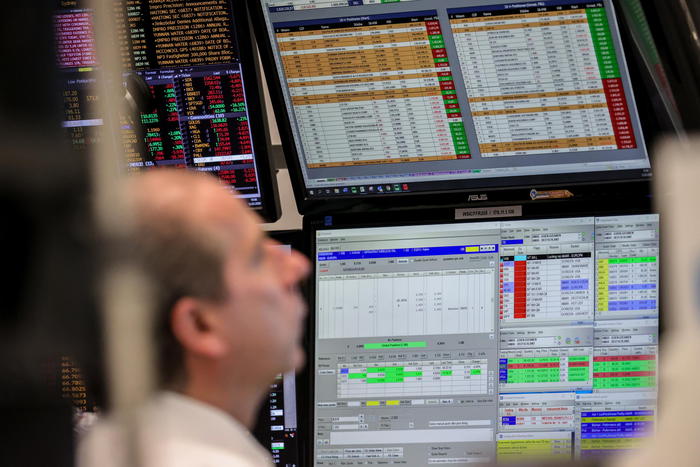Norway's balancing act between economy, environment - and the European thirst for oil and gas
Created: 08/30/2022, 08:57
By: Anna-Katharina Ahnefeld
The Johan Sverdrup oil platform is located 14 kilometers off the coast of the city of Stavamnger in Norway.
© Lars Lindqvist/Imago
In the greatest energy crisis, Europe turns to Norway.
As the second largest oil and gas supplier to Germany and the EU, Oslo is a sought-after partner – at the expense of the climate?
Oslo/Trondheim – Oil and gas made Norway rich.
So rich that the Scandinavian country is one of the wealthiest countries in the world.
Since the start of the Russian invasion war in Ukraine, Europe and especially Germany have been greedy for Nordic gold.
Russia is no longer a reliable partner, let alone a moral one.
This makes a close partnership with Norway, Europe's largest oil and gas producer, all the more desirable.
Oslo is making money from Europe's energy shortages with an industry that it actually wanted to leave behind.
Norway's importance in the energy crisis: Oil and gas helped to create great prosperity
A look into the past helps to understand Norwegians’ relationship to oil and gas.
Until the early 1970s, Norway was a poor country living off fishing and agriculture.
The discovery of oil and gas deposits was a turning point.
Norway is now one of the largest oil and gas exporters in the world, and fossil energies fuel great prosperity.
At the same time, the Nordic country relies almost entirely on renewable energies such as water and wind power for its own needs.
“Norway's importance as an energy supplier was already great before the energy crisis and has now increased again.
That is why there are now demands in Norway to develop further areas because the country can no longer deliver at the moment.
Funding capacities are at their limit," says political scientist Dr.
Tobias Etzold from the Technical University of Trondheim
FR.de
by IPPEN.MEDIA.
Although the expansion of renewable energies is being promoted, the prevailing attitude is that the age of oil and gas is not over.
Many see the current demand in Europe as confirmation.
The events have not dried up yet, nor are there areas that can be developed.
As early as March, the Norwegian government announced that it intends to issue new licenses for drilling, including in untouched areas of the Arctic.
Norway's importance as an energy supplier was already great before the energy crisis and has now increased again.
That is why there are now demands in Norway to develop further areas because the country can no longer deliver at the moment.
The funding capacities are at their limit.
Tobias Etzold, Technical University of Trondheim
But not everything that man can do should be done.
Environmental groups warn against meeting Europe's needs with new oil and gas production, especially in the Arctic, one of the regions on earth most affected by climate change.
In the past, the ban on new drilling licenses was one of the most pressing demands of the Norwegian climate movement.
also dr
Volker Rachold, head of the German Arctic Office at the Alfred Wegener Institute, Helmholtz Center for Polar and Marine Research (AWI) gives a clear assessment to
FR.de
from IPPEN.MEDIA: “The fact that oil and gas production in the Arctic with associated with major environmental risks, we have known for a long time.
Arctic ecosystems are largely untouched and extremely vulnerable to pollution and oil spills.”
Oil and gas fields in the Arctic: Greens and leftists against new drilling in vulnerable areas
The development of new finds is therefore a contentious playing field in Norway.
Tobias Etzold emphasizes this.
“The Greens, the left and parts of civil society are warning that nature should be left untouched, they fear that fragile areas such as the northwestern Arctic, which have so far been exempt from drilling, will be developed.
But the ruling social democratic Labor Party and the conservative Høyre Party want to expand oil and gas production.”
Norway and its oil and natural gas industry
The oil and gas industry is Norway's most important industry.
The largest company, Equinor, is 67 percent state-owned.
70 percent of gas exports go to Europe, which means that Norway covers around 20 percent of European demand and around 30 percent of Germany's demand.
Norway is the world's second largest exporter of natural gas.
More gas is currently flowing into Europe than ever before.
The German-Norwegian Chamber of Commerce writes on its website about the oil and gas deposits: “The total oil resources on the Norwegian continental shelf are estimated at around 14.3 billion Sm3 TOE.
Of this, 48 percent is produced, sold or delivered.
39 percent of the total remaining resources remain undeveloped.
About half of these deposits are believed to be in the Barents Sea.”
According to Agence France-Press, Norway recorded a record foreign trade surplus in July due to higher gas prices.
The value of Norwegian exports of goods exceeded imports by 153.2 billion kroner (15.6 billion euros).
This was announced by the national statistics institute.
Year-on-year, the country quadrupled its gas export revenue in July.
Oil and Energy Minister Terje Aasland announced on Tuesday (23 August) that natural gas production would remain at the current, high level until 2030.
There are "projects and plans for development and operation that can help maintain the high gas volumes in the future," he was quoted as saying by the
Reuters
news agency .
A reduction in oil and gas production in view of the climate crisis: shelved for the time being.
The argument that is often used as a line of defense for the oil and gas industry in this context is that Norway is relatively sustainable in its production and emits little CO₂ because the platforms are powered by renewable energy.
Greenwashing, critics complain.
The Socialist Left Party, for example, is in favor of the fastest possible exit from oil and gas production, as Lars Haltbrekken
told FR.de
demanded by IPPEN.MEDIA.
Haltbrekken is a member of the Norwegian National Parliament, Storting, and a member of the Energy and Environment Committee.
Just last year, his party broke up the coalition negotiations with the Social Democrats - due to disagreements over climate protection.
“It takes ten, twenty years before production can start in newly developed areas.
In Europe, however, we have to get rid of oil and gas before this time frame,” says Haltbrekken, fundamentally questioning the point of new oil and gas deposits.
He is convinced: “We have to do more about energy efficiency, we have to do more about solar energy and we have to do a lot more about offshore wind power.
These are the three pillars that Norway must use for zero-emission energy.”
Energy crisis as a step backwards in the fight against climate change?
Expert gives three reasons
Economist Asbjørn Torvanger, researcher at the Oslo climate and environment foundation Cicero, is also thoughtful in view of the current developments.
In his view, the energy crisis represents at least a short-term step backwards in the fight against climate change, he says to
FR.de
from IPPEN.MEDIA, citing three points:
The focus of the EU has shifted towards security policy and energy security as a result of the Ukraine war and the energy crisis, while combating climate change has receded into the background.
If there is not enough renewable energy, oil and gas available, the incentive to restart polluting coal production could increase.
Renewable energies and gas are currently not sufficient in the EU to cover the electricity needs, especially in areas with little wind and solar energy generation, and there is also the planned decommissioning of nuclear power in Germany.
The changed international conditions due to the Russia-Ukraine war could have an impact on the upcoming UN Climate Change Conference 2022 in Sharm El Sheikh, Egypt.
The fight against the climate crisis is an international task, and tense political conditions make cooperation difficult.
The fact is that the country finds itself in a balancing act between economic interests, the European thirst for oil and gas and the necessary expansion of renewable energies.
“The current situation can be a step backwards in the fight against the climate crisis.
But it also offers the opportunity to use this energy crisis to develop zero-emission energy sources,” says Lars Haltbrekken.
About IPPEN.MEDIA
The IPPEN.MEDIA network is one of the largest online publishers in Germany.
At the locations in Berlin, Hamburg/Bremen, Munich, Frankfurt, Cologne, Stuttgart and Vienna, journalists from our central editorial office research and publish for more than 50 news offers.
These include brands such as Merkur.de, FR.de and BuzzFeed Germany.
Our news, interviews, analyzes and comments reach more than 5 million people in Germany every day.
Norway's Prime Minister Jonas Gahr Støre indicated something similar at the Nordic Council's press conference after Chancellor Olaf Scholz's visit to Oslo.
Norway is striving to be a stable gas supplier for Germany, said the social democrat, but made it clear that the expansion of renewable energies is being promoted to "compensate for the unreliable supply of Russian gas." There will be more renewables in the future need energy, namely “exclusively renewable energy”.
He described oil and gas as an interim solution in the energy transition.
At an EU-Norway meeting in June on a closer energy partnership, not only plans to promote and expand fossil fuels were discussed, but also cooperation with regard to renewable energies.
Norway and Germany are currently examining the construction of a pipeline to import green hydrogen from the Scandinavian country.
The country's largest oil and natural gas producer, Equinor, also announced plans to increase its investments in renewable energy - but not without emphasizing that the development of fossil fuels will continue in view of the European energy crisis.
Conclusion: A step backwards in the guise of progress or progress disguised as a step backwards?
We will see.
Even if the resources for oil and gas are not exhausted, the climate is.














